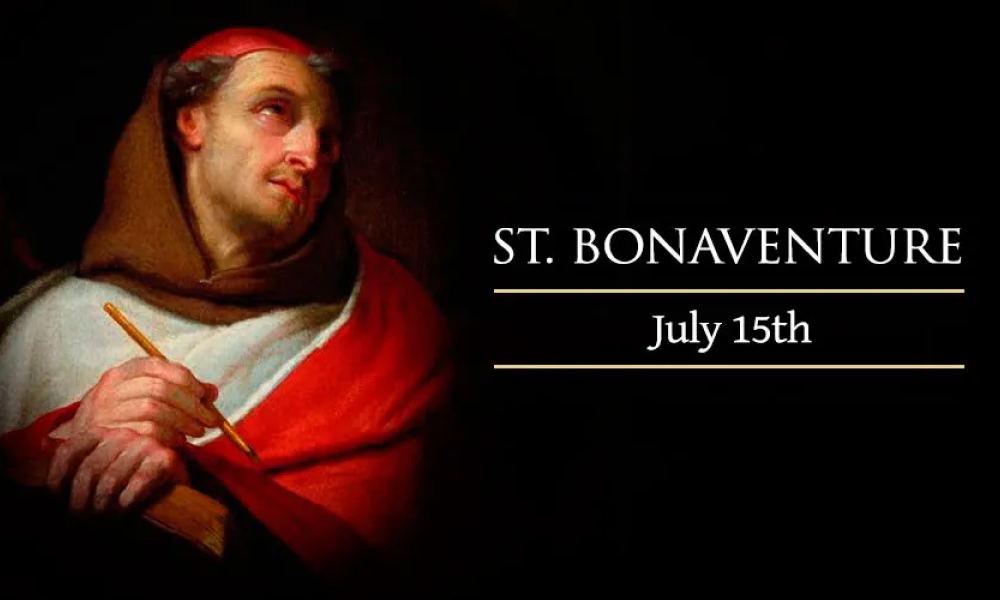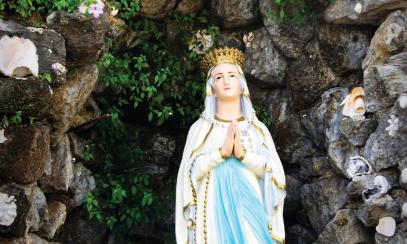
A Leader in the Franciscan Movement at a Critical Time
In the history of religious orders, the charismatic founder sometimes begins a movement that is unsustainable in its original form. It then falls to a talented follower to organize the group and put structures in place. Such was the case with Bonaventure of Bagnoregio.
When studying for a master’s degree in Paris, Giovanni di Fidanza met followers of St. Francis of Assisi. They so impressed him that he joined the Franciscans. He wrote: “The Church began with simple fishermen and was subsequently enriched by very distinguished and wise teachers; the religion of Blessed Francis was not established by the prudence of men but by Christ.” He was clothed in the Franciscan habit about the year 1243 and took the name Bonaventure.
Bonaventure had been a talented student of theology at the University of Paris. Tensions were building between university masters and the new orders of friars, such as the Franciscans and Dominicans, who were beginning to occupy university chairs. The right of the friars to teach was challenged, and their style of religious life was questioned.
They did not live in monasteries; they were in the streets spreading the Gospel. Bonaventure wrote a text, Evangelical Perfection, describing how the mendicant orders, and specifically the Franciscans, were following the Gospels in professing vows of poverty, chastity, and obedience. Bonaventure was officially recognized as a doctor and master at the University of Paris.
Minister General
In 1257 Bonaventure had to leave academic life when he was elected minister general by a general chapter of the Franciscans. Bonaventure would serve the order for 17 years.
By the time Bonaventure had been elected to leadership, the Franciscans had experienced a rapid expansion. Now no longer a small group walking the countryside preaching the Gospel, staying wherever they found shelter, and supported by the generosity of those whom they met, the order now numbered in the thousands, and it was Bonaventure’s task to organize this movement.
Tensions arose within the group with different interpretations of the legacy of St. Francis. Bonaventure collected material and remembrances from those who had known Francis. He wrote Legend of Saint Francis, a work identified by the Franciscan general chapter of 1263 as the official biography. The order needed structure and, following St. Francis’ determination, it needed to be faithful to the hierarchical Church. To maintain its structure and spirit, Bonaventure saw the need for a theological foundation.
Theologian
Bonaventure drew his theological insights from the lived experience of St. Francis. Francis, in his imitation of Christ, made the Lord present for his time. In Bonaventure’s theology, God’s very nature is love and this love, expressed within the Trinity, overflows into the created world. All creation bears the imprint of the Creator. All creation has the capacity to reflect the Creator as triune.
In 1259, Bonaventure wrote The Soul’s Journey into God. He planned this work while at Mount La Verna where, 33 years before, St. Francis had received the stigmata. Francis saw a vision of a winged seraph in the form of a crucifix. Meditating on the experience of Francis, Bonaventure understood the six wings of the seraph to be six stages of the soul’s journey leading to a final stage of union with God.
Influenced by the mystical theology of Pseudo-Dionysius, Bonaventure held that reason can reach a point where it no longer sees. But love can go beyond reason. Pope Emeritus Benedict XVI, who, as a young scholar, studied Bonaventure, wrote, “St. Bonaventure was fascinated by this vision which converged with his own Franciscan spirituality. It is precisely in the dark night of the Cross that divine love appears in its full grandeur; where reason no longer sees, love sees” (Great Christian Thinkers).
According to Bonaventure, the goal of the spiritual life is to be a contemplative, to be centered in God. Bonaventure taught that we come to know God by contemplating the humanity of Christ. He wrote, “There is no other path but through the burning love of the Crucified.”
Bonaventure’s emphasis on having an interior life, a life in relationship with God, is a timely message for today’s world. Bonaventure scholar, Sr. Ilia Delio, O.S.F., writes: “The lack of interiority…is becoming increasingly apparent in our contemporary culture which is media saturated. …Only when God, the image in whom we are created, is the basis of the human spiritual quest, is the fullness of happiness and peace attained” (Simply Bonaventure).
Canonized in 1482, St. Bonaventure was declared a Doctor of the Church by Pope Sixtus V in 1588. His feast day is July 15.


